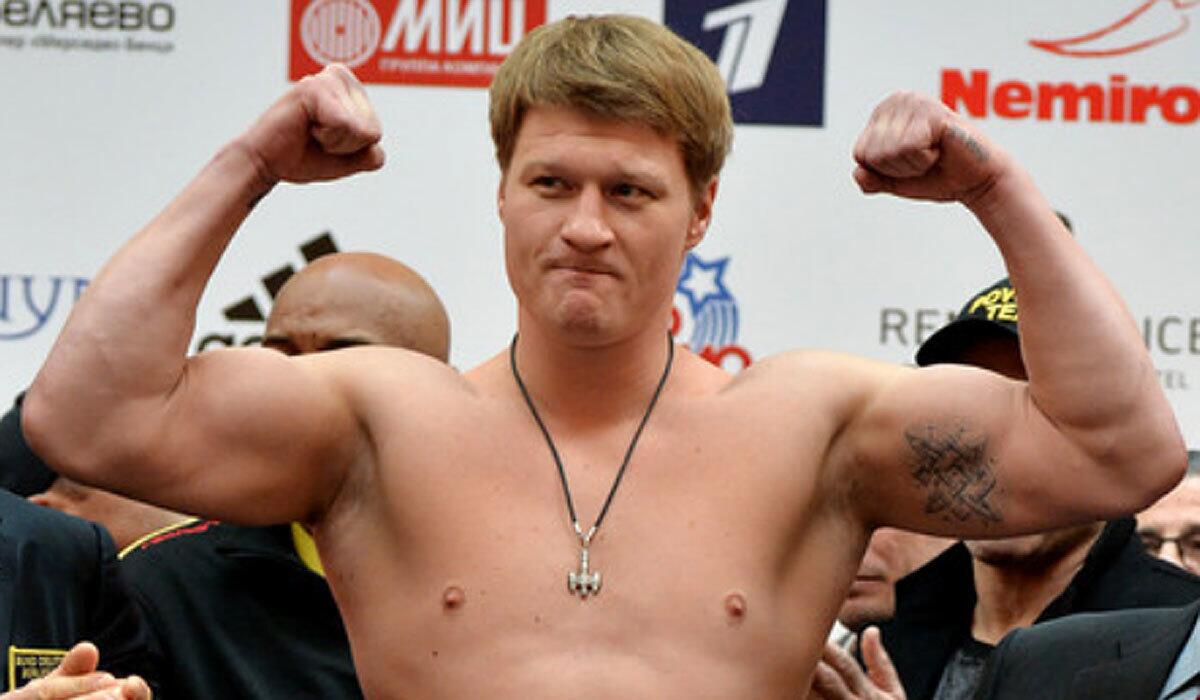WBC clears heavyweight Alexander Povetkin to fight again after testing positive for banned drug

The World Boxing Council on Wednesday permitted Russian heavyweight title contender Alexander Povetkin to return to the ring less than four months after he tested positive for the banned substance meldonium.
Povetkin (30-1, 22 knockouts) had his scheduled May bout in Moscow against WBC champion Deontay Wilder scrapped after the Voluntary Anti-Doping Assn. secured a positive drug test on April 27 against the Russian boxer.
Wilder (35-0) took an approved interim fight against Riversideâs Chris Arreola on July 16 in Alabama, knocking out Arreola but suffering a broken hand and torn right-arm biceps.
In two statements released Wednesday, the WBC said Povetkin is required to undergo mandatory testing â for which he will pay â through the voluntary anti-doping group, but the sanctioning body also ordered him to fight former champion Bermane Stiverne.
Negotiations on the match were to begin Wednesday. If terms canât be reached, the discussion will go to purse bid Sept. 16. Each fighter was to receive a 50% purse split, the WBC said.
Although his mandatory title shot was taken away, Povetkin avoided a lengthy suspension, and by defeating Stiverne â from whom Wilder took the belt in January 2015 â he will be in line to fight Wilder when the WBC champ returns from his injuries early in 2017.
A low level of meldonium was found in Povetkinâs system during the test.
The WBC explained in its first Wednesday statement, âMeldonium is supposed to work through its ability to increase the size of blood vessels and therefore improve blood flow. But there is also controversial data and ongoing debate among scientists and the medical community as to whether Meldonium intake indeed produces performance-enhancing benefits during athletic competition.â
Although the World Anti-Doping Agency has banned meldonium use, it has provided addendums, taking into account several other negative results from Povetkin and directing that âwith respect to urine samples collected from March 1, 2016, through Sept. 30, 2016, for concentrations of Meldonium under 1.0 microgram per milliliter, â[I]n the absence of other evidence of use on or after Jan. 1 2016, a finding of no fault may be made.â â
Povetkinâs positive level was 0.070, according to the WBC.
The sanctioning body set up its final ruling by writing, âBased on the adverse finding of Mr. Povetkinâs âAâ and âBâ April 27, 2016 samples, and taking into consideration the detected levels of Meldonium in those samples, the impossibility to scientifically prove that Mr. Povetkin ingested Meldonium after Jan. 1 2016 ⌠.â
Should Povetkin test positive for a banned substance during the one-year testing process, the WBC said he will be subject to an indefinite suspension.
More to Read
Go beyond the scoreboard
Get the latest on L.A.'s teams in the daily Sports Report newsletter.
You may occasionally receive promotional content from the Los Angeles Times.











